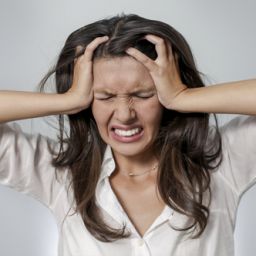
Causes for Menopause
Menopause occurs due to a complex series of hormonal changes. Associated with the menopause is a decline in the number of functioning eggs within the ovaries. At the time of birth, most females have about 1 to 3 million eggs, which are gradually lost throughout a woman’s life. By the time of a girl’s first menstrual period, she has an average of about 400,000 eggs. By the time of menopause, a woman may have fewer than 10,000 eggs. A small percentage of these eggs are lost through normal ovulation (the monthly cycle). Most eggs die off through a process called atresia (the degeneration and subsequent resorption of immature ovarian follicles – fluid filled cysts that contain the eggs).
Normally, FSH, or follicle-stimulating hormone (a reproductive hormone), is the substance responsible for the growth of ovarian follicles (eggs) during the first half of a woman’s menstrual cycle. As menopause approaches, the remaining eggs become more resistant to FSH, and the ovaries dramatically reduce their production of estrogen.
Estrogen affects many parts of the body, including the blood vessels, heart, bone, breasts, uterus, urinary system, skin, and brain. Loss of estrogen is believed to be the cause of many of the symptoms
associated with menopause. At the time of menopause, the ovaries also decrease their production of testosterone-a hormone involved in libido, or sexual drive.
ANJALI MUKERJEE, Nutritionist, Founder Director-Health Total, having health centers in Mumbai, Delhi, Bangalore, Pune -manages obesity & other health related disorders.
Contact numbers: ![]() 1-800-843-0206/+91 86575 61727
1-800-843-0206/+91 86575 61727
For further information, Visit www.health-total.com


